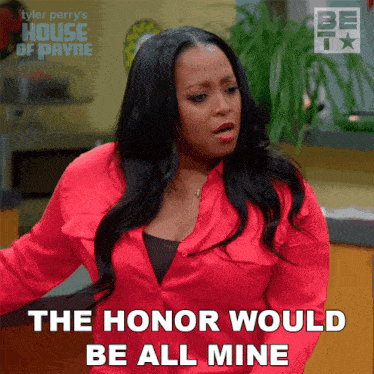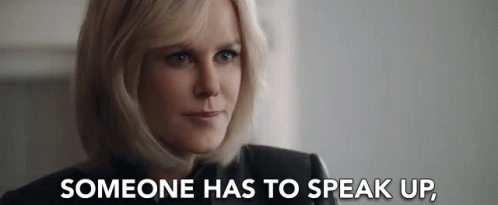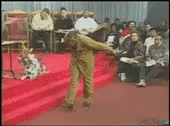Ever found yourself speechless in the aftermath of tragedy? In Genesis 34, we encounter one of Scripture's most disturbing narratives. Dinah, Jacob's daughter, is sexually assaulted by a local prince who then decides he wants to marry her.
Her brothers, burning with righteous fury (and something darker), trick an entire town into circumcision before massacring them all.
Meanwhile, Jacob—our renamed wrestler from earlier chapters—remains disturbingly silent until he finally speaks up... about his reputation. This isn't just a difficult Bible passage—it's a raw examination of sexual violence, revenge, justice gone wrong, and the deafening sound of patriarch silence.
In a world still wrestling with these same issues, this ancient text speaks with haunting relevance.
The Anatomy of Trauma and Response
Genesis 34 moves with the brutal honesty of human brokenness. "Dinah, the daughter of Leah, whom she had borne to Jacob, went out to see the women of the land." This innocent action sets in motion everything that follows. The pattern is devastating:
Violation occurs → Male authorities negotiate → Brothers deceive → Vengeance unleashed → Patriarch fears consequences
This isn't just narrative progression – it exposes something profound about cycles of violence. The assault on one woman explodes into the destruction of an entire community, revealing how trauma ripples outward in ever-widening circles of devastation. Each verse builds upon the previous, creating an intricate portrait of how violence begets violence when justice is sought outside God's parameters.
Breaking Down the Chapter
Verses 1-4: Dinah is violated by Shechem
Verses 5-7: Jacob's silence and her brothers' rage
Verses 8-12: Hamor and Shechem propose marriage and settlement
Verses 13-17: Brothers demand circumcision as a condition
Verses 18-24: Men of the city agree to circumcision
Verses 25-29: Simeon and Levi massacre the city, others plunder
Verses 30-31: Jacob worries about consequences; brothers defend their sister
But here's what's haunting – notice who never speaks? Dinah herself. The victim's voice is completely absent from the narrative. The text moves from male perspective to male perspective, from male action to male reaction, while the woman at the center remains voiceless. This is not accidental; it reflects ancient patriarchal realities while simultaneously exposing their inadequacy.
Missing Voices: The Silenced Center
When we reach the core issue of this narrative, the text becomes troubling on multiple levels. A young woman is violated, then completely silenced in the telling of her own story. "Now Dinah... went out to visit the women of the land. When Shechem son of Hamor the Hivite, the prince of the region, saw her, he took her and violated her" (Genesis 34:1-2).
This is sobering. In a world where sexual violence remains prevalent, Genesis doesn't sanitize or ignore its reality but exposes its horrific nature. Dinah becomes a narrative focal point around which male characters orbit, yet she herself remains voiceless – a powerful indictment of patriarchal systems that silence victims.
The most striking element of Genesis 34 isn't what's said—it's what isn't. Dinah, whose violation drives the entire narrative, never speaks a single word. Her silence echoes through millennia, reminding us to listen for the voices Scripture doesn't record.
UNDERSTAND THE CONTEXT
The Status of Women in Ancient Near Eastern Culture
Understanding Genesis 34 requires grasping the social and legal status of women in Jacob's time:
Women were considered property, transferred from father to husband through marriage
Sexual violation was primarily viewed as a crime against a father's or husband's honor
Marriage negotiations were conducted between men, with women having little say
A woman's value was closely tied to her virginity before marriage
Collective honor and shame were powerful social forces governing community responses
These cultural realities help explain (though not justify) why Jacob and his sons respond as they do, and why Dinah's own perspective is absent. By understanding this context, we can better recognize both how the text reflects its cultural setting and how it subtly challenges it.
Where is God in Genesis 34?
The most unsettling aspect of this chapter might be God's apparent absence. Unlike most pivotal Genesis narratives, God doesn't speak or directly act here. This divine silence creates a theological vacuum that demands our attention.
Some scholars suggest this silence itself is the message—God allows human actions and their consequences to unfold without intervention, revealing the devastating results of human vengeance. Others note that while God doesn't speak in the chapter, the narrative itself serves as divine commentary through what it reveals and conceals.
Perhaps most significantly, this chapter stands in stark contrast to Genesis 33, where Jacob reconciles with Esau, and Genesis 35, where God speaks to Jacob about returning to Bethel. Genesis 34 serves as a dark interlude showing what happens when God's people operate by the world's value systems rather than divine guidance.
God's silence in Genesis 34 speaks volumes. In a chapter filled with human speeches justifying violence, perhaps divine silence is itself a form of judgment—leaving human actions exposed in all their inadequacy.
Christ as our Advocate
Genesis 34 anticipates the gospel in ways we might not immediately recognize. In a narrative where Dinah has no voice—where she's spoken about but never speaks—we glimpse by contrast the heart of Christ's ministry. Where Dinah was silenced, Jesus consistently gave voice to the marginalized. Where Jacob failed to advocate for his daughter, Jesus stands as the perfect Advocate for the vulnerable.
The apostle John reminds us, "If anyone sins, we have an Advocate with the Father, Jesus Christ the righteous" (1 John 2:1). The Greek word for "advocate" (parakletos) literally means "one called alongside to help"—precisely what Dinah lacked in her trauma.
In the absence of an advocate for Dinah, we see the desperate need for one. In the brothers' vengeful response, we see justice perverted through human hands. In Jacob's self-protective silence, we see the failure of human authority. All these point to our need for Christ who:
Speaks for those who cannot speak for themselves (Proverbs 31:8)
Establishes true justice without vengeful destruction
Stands between violated humanity and righteous judgment
Takes violence upon himself rather than perpetuating its cycle
Most powerfully, when Christ hung on the cross, God's "silence" reached its crescendo as Jesus cried, "My God, my God, why have you forsaken me?" In that moment, Jesus experienced the ultimate divine silence that Dinah and countless victims have felt. Yet through that seeming abandonment, he became our eternal Advocate, ensuring no one who comes to him will ever be ultimately silenced or abandoned.
Where Genesis 34 shows human systems failing to bring justice and healing, Christ offers what human institutions cannot: perfect advocacy, true justice, and complete restoration for the violated and voiceless.
WHY WAS JACOB SILENT?
Throughout most of Genesis 34, Jacob—formerly a man who wrestled all night with God—remains disturbingly silent. The text tells us he "heard that his daughter Dinah had been defiled," but he "kept quiet" until his sons returned.
When Jacob finally speaks in verse 30, his words are troubling: "You have brought trouble on me by making me obnoxious to the Canaanites and Perizzites, the people living in this land. We are few in number, and if they join forces against me and attack me, I and my household will be destroyed."
Notice what's missing? No concern for Dinah. No moral outrage about the assault. No grief over his daughter's suffering. Just anxiety about his reputation and safety.
This isn't a minor detail—it's a spiritual warning! It reveals how even those who have encountered God (as Jacob did in his wrestling match) can become morally compromised when securing their position and reputation becomes their primary concern.
Jacob's silence and self-centered response stand as a cautionary tale about the failure of spiritual leadership in moments that demand moral clarity and protective action.
Navigating Scripture's Dark Passages
Genesis 34 belongs to a collection of biblical texts scholars sometimes call "texts of terror"—passages that depict violence, particularly against women, without explicit condemnation. How should we approach such challenging texts?
Read with unflinching honesty – Acknowledge the violence and injustice without minimizing or justifying it
Listen for silenced voices – Pay attention to whose perspective is missing and imagine the narrative from their viewpoint
Recognize descriptive vs. prescriptive elements – The Bible describing something doesn't mean it's endorsing it
Look for subtle critiques within the text – Notice how the narrative itself may undermine the actions of its characters
Connect to the larger biblical narrative – How does this passage relate to Scripture's overall movement toward redemption?
Genesis 34 doesn't provide easy answers, but by wrestling honestly with such difficult texts, we develop spiritual muscles needed to confront the complex moral challenges of our own day.
Your Turn to Walk Through
As you read Genesis 34 again (and I encourage you to do so, difficult as it may be), consider:
How does this chapter challenge your understanding of how Scripture addresses difficult realities?
Where do you see yourself in this story—in Jacob's silence, the brothers' rage, or perhaps in the unnamed women of Shechem who suffered collateral damage?
What does this narrative reveal about how cycles of violence perpetuate themselves across generations and communities?
Remember, this isn't just an ancient tale of tribal violence—it's a mirror reflecting aspects of our broken world that still demand faithful response and God-guided transformation.
Genesis 34 isn't easy reading. It confronts us with realities many would prefer to skip over: sexual violence, revenge killings, patriarchal silence, and God's apparent absence. Yet perhaps it's precisely these difficult passages that most need our careful attention.
In a world where we continue to expose abuses of power, where cycles of vengeance tear apart communities, and where religious leaders too often remain silent in the face of injustice, Genesis 34 reads like it was written for our time.
What would it mean to truly hear Dinah's silenced voice? How might our faith communities better respond to sexual violence? Where is the line between righteous indignation and destructive vengeance? When should we speak up, and what happens when we remain silent?
I'd love to hear your thoughts in the comments below. How does this challenging chapter speak to you?









